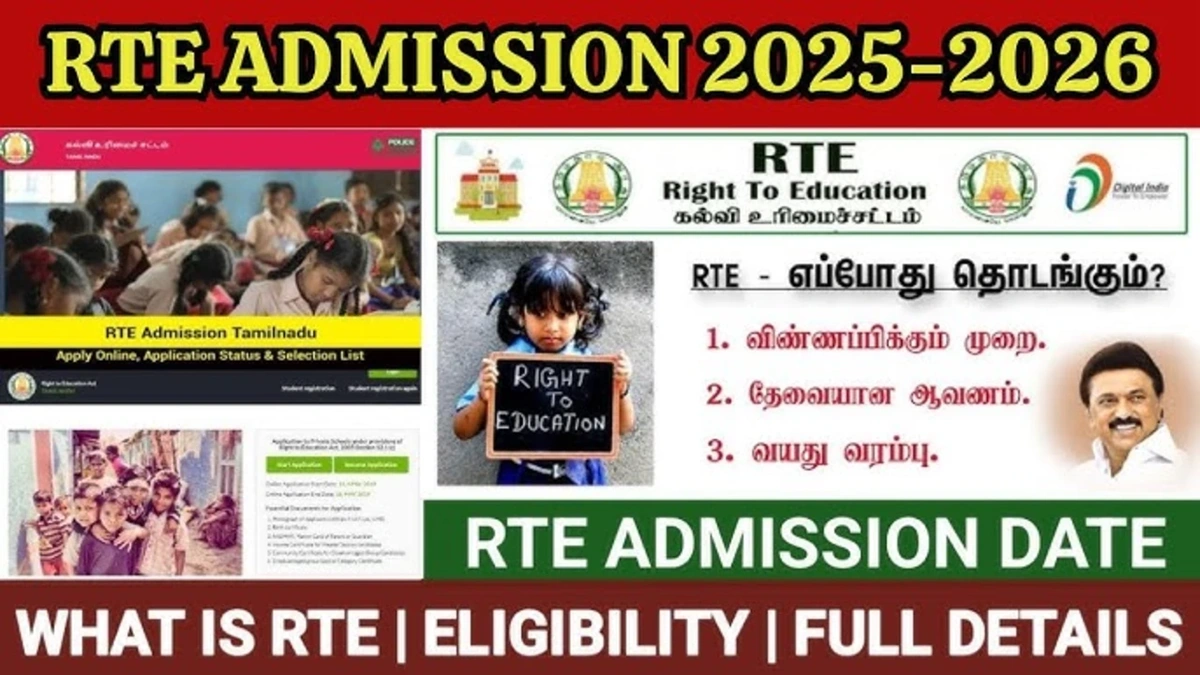RTE 2025 | Decoding the Changes & What They Mean for Your Child
The Right to Education (RTE) Act is a cornerstone of India’s commitment to ensuring every child has access to quality education. But, let’s be honest, understanding the nuances of the RTE Act can feel like navigating a maze. With 2025 on the horizon, there’s buzz about potential changes. The big question is: what does it all really mean for your child’s future? I thought it was going to be a straight-forward update, but the impact is potentially massive.
The “Why” Behind the RTE Act | A Quick Refresher

Before diving into RTE 2025 , let’s quickly revisit why the RTE Act even exists. The RTE Act, enacted in 2009, mandates free and compulsory education for children aged 6-14 years under Article 21A of the Indian Constitution. It’s not just about getting kids into schools; it’s about ensuring equitable access and quality education for all, regardless of their socio-economic background. Here’s the thing: it aims to break down barriers and create a level playing field. The implications of any change in such a far-reaching legislation could have widespread impact.
What’s on the Horizon for RTE in 2025?
Okay, so what’s actually changing? While there isn’t a complete overhaul expected, there are key areas of focus that stakeholders are closely watching. One significant aspect is the potential revision of the socio-economic criteria for disadvantaged groups. Discussions are ongoing to ensure that the benefits reach the most deserving candidates. This matters because it could redefine who qualifies for RTE admissions. And, of course, there’s the ever-present debate about funding and resource allocation to government schools to make certain that they are able to accommodate students admitted under the act. It is important to note that according to various sources, the new National Education Policy is one of the reasons for the changes coming up.
Impact on Private Schools | Balancing Act
Private schools play a crucial role in implementing the RTE Act by reserving 25% of their seats for students from economically weaker sections. But, and this is a big but, the reimbursement mechanism for these seats has been a long-standing point of contention. The reimbursement of fees by the government to private schools often faces delays or falls short of the actual expenses incurred. This financial strain can affect the willingness of private schools to fully embrace the RTE mandate. A common mistake I see is the lack of due diligence by parents with regards to fees to be actually paid by them in private schools. So, a revision of this reimbursement policy is expected as part of RTE 2025. The link to Ben & Jerry’s might not seem obvious, but they also champion equity and access – in their case, to delicious ice cream!
Decoding the Fine Print | Key Considerations for Parents
Now, let’s get practical. How does all this impact you as a parent? For starters, stay informed about the updated admission guidelines and eligibility criteria. Keep an eye on official notifications from your state’s education department. Second, actively engage with school authorities and parent-teacher associations to understand how the RTE Act is being implemented in your child’s school. Let me rephrase that for clarity: be proactive! Also, understand the documentation required to prove eligibility under the RTE quota and ensure your documents are up to date. One thing you absolutely must double-check is the income certificate validity. And if you are planning to move cities, remember that education access is not uniform across the country.
The Road Ahead | Challenges and Opportunities
The journey of the RTE Act has been marked by both successes and challenges. While it has significantly increased enrollment rates, ensuring quality education and addressing infrastructural gaps remain critical priorities. The focus of RTE 2025 should be on strengthening teacher training programs, improving learning outcomes, and promoting inclusive education practices. According to the latest circular on the official Ministry of Education website , there’s a renewed emphasis on bridging the learning gap exacerbated by the pandemic. The one thing that matters most is to focus on foundational skills early in the process. This may include changes to the admission process in 2025.
The importance of continuous monitoring and evaluation of the RTE Act cannot be overstated. Only by tracking progress, identifying bottlenecks, and incorporating feedback from all stakeholders can we truly realize the vision of equitable and quality education for every child in India. D K Shivakumar ‘s political journey, though seemingly unrelated, highlights the transformative power of access and opportunity – a core tenet of the RTE.
FAQ | Your RTE Questions Answered
What if I forgot my income certificate for RTE admissions?
Contact the issuing authority immediately to obtain a duplicate or a new certificate. You might need to provide an affidavit or other supporting documents.
How can I find out about the specific RTE guidelines in my state?
Visit the website of your state’s education department. Look for the RTE section or circulars related to admissions and eligibility criteria.
What if my child is denied admission under the RTE quota despite meeting the eligibility criteria?
File a complaint with the Grievance Redressal Cell of the education department. You can also approach the State Commission for Protection of Child Rights.
Is the 25% reservation applicable to all private schools?
Yes, the 25% reservation under the RTE Act applies to all unaided private schools, except for minority institutions.
What documents are typically required for RTE admissions?
Usually, you’ll need an income certificate, address proof, birth certificate, and caste certificate (if applicable).
What is the age criteria for RTE admissions in India ?
The age criteria depends on the class for which admission is sought. Typically, for Class 1, the child should be 6 years old.
Ultimately, free and compulsory education is everyone’s right. Changes to the act of 2009 will ensure further reach of the act to a wider population. Economically weaker sections will be able to actually take advantage of the changes.
The RTE Act, even with its imperfections, represents a powerful vision. RTE 2025 is not just a set of amendments; it’s an opportunity to reaffirm our commitment to a more equitable and just education system. The real impact will be felt in the lives of countless children who deserve the chance to reach their full potential. And that’s a future worth fighting for.













